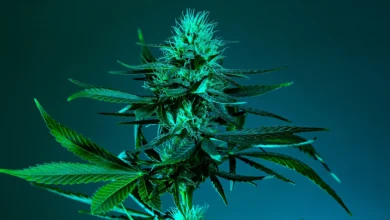Delta 8 vs. Delta 9 CBD: Understanding the Key Differences

This is going to be a fun article to read as we dive into the fascinating world of two cannabinoids, Delta 8 and Delta 9 THC. Both of these cannabinoids are unique in their own ways, however, their similar names often lead to some confusion for people. In this article, we’re going to explore what sets Delta 8 apart from Delta 9, looking at their effects, legal status, and safety, and we’ll be backing it all up with solid sources.
What are Delta 8 and Delta 9?
Delta 8 and Delta 9 are both forms of THC (tetrahydrocannabinol), the primary psychoactive compound found in cannabis. Delta 9 THC is the most well-known and abundant form, responsible for the classic “high” associated with marijuana. Delta 8 THC is a less common variant, occurring in smaller quantities in the cannabis plant.
The Effects: A Clear Distinction
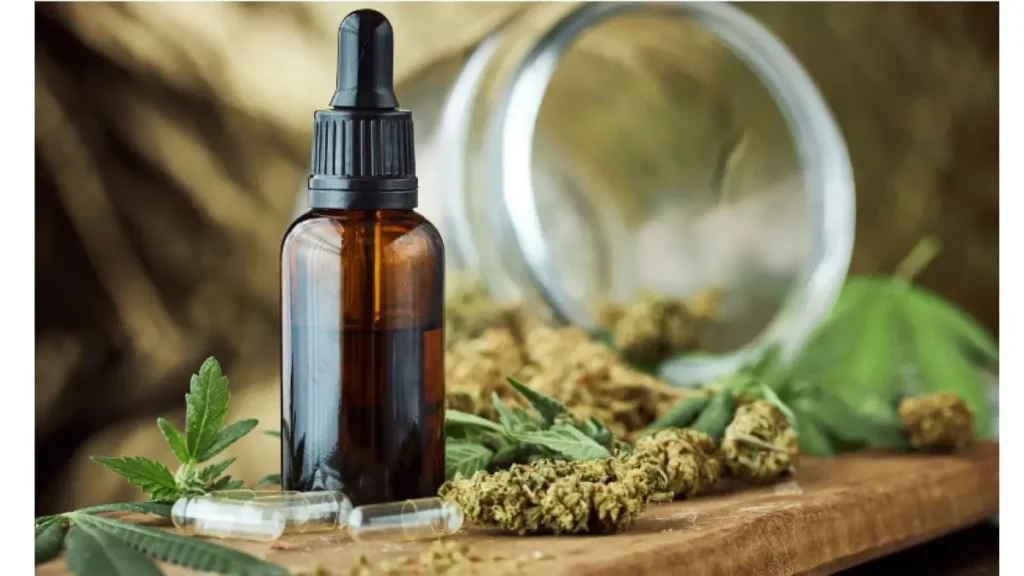
The effects of Delta 8 and Delta 9 are where the two compounds truly diverge. Delta 9 is known for its potent psychoactive effects, which can include euphoria, altered perception, and in some cases, anxiety or paranoia. Delta 8, however, provides a milder high, with users reporting a clear-headed experience and reduced anxiety.
However, this difference in its effects has made Delta 8 an appealing option for those seeking the benefits of THC without the intense high. This 2017 study demonstrates both compounds have potential medicinal benefits, including pain relief, anti-inflammatory properties, and anti-nausea effects.
The cannabinoid spectrum is vast and varied, with Delta 8 and Delta 9 THC being two compounds that have sparked significant interest and debate. Their chemical similarities may be confusing, but their differences in effects and legal status are what set them apart in the consumer market.
Delta 8 THC: The Gentle Giant
Delta 8 THC is often described as the gentler cousin of Delta 9. It’s synthesized from CBD, which is legal in many jurisdictions, making Delta 8 products more widely available. Its psychoactive effects are considered less intense, which can be advantageous for those who experience anxiety or other adverse effects from traditional cannabis products. A study by the National Cancer Institute indicates that Delta 8 also has antiemetic, anxiolytic, appetite-stimulating, analgesic, and neuroprotective properties.
Delta 9 THC: The Traditional Choice
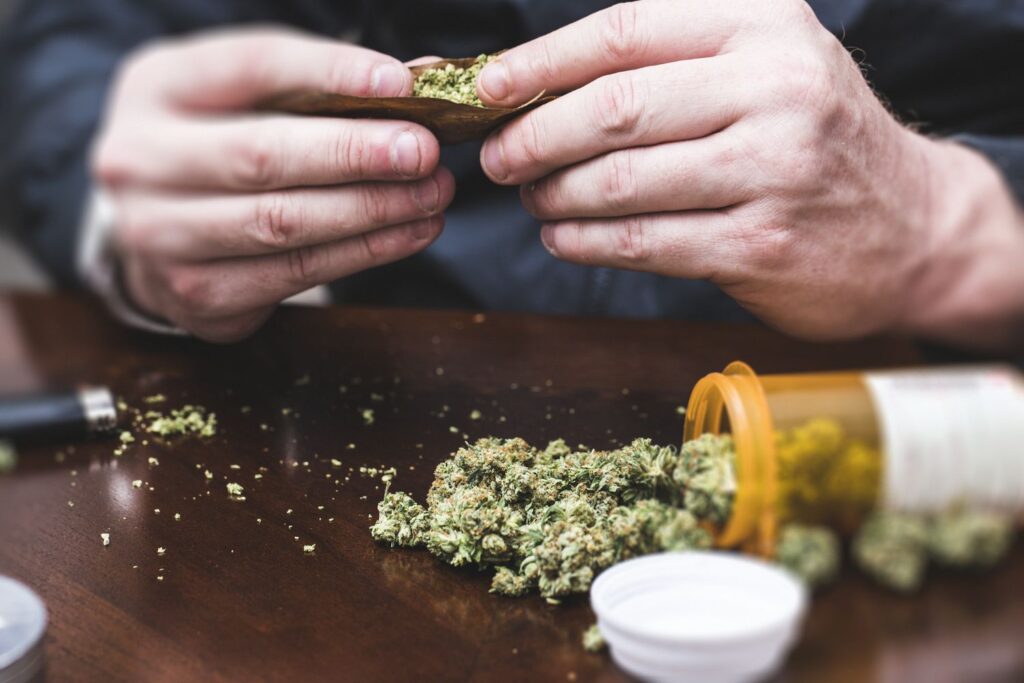
Out of the many cannabinoids that are in the cannabis plant, Delta 9 THC is without a doubt the most extensively studied cannabinoid. It’s the compound most people refer to when they talk about the effects of marijuana because of its strong psychoactive effects. While it can provide significant therapeutic benefits, such as pain relief and nausea control, it can also produce intense psychoactive experiences. This can be overwhelming for some users, particularly those with lower tolerance levels or those using cannabis for the first time.
Regulatory Challenges and Consumer Safety
The legal distinctions between Delta 8 and Delta 9 have created a complex regulatory environment. The 2018 Farm Bill legalized hemp-derived cannabinoids, which inadvertently opened the market for Delta 8 products. However, some states have moved to restrict the sale and distribution of Delta 8 products, creating a patchwork of laws that consumers must navigate carefully.
For those interested in exploring the benefits of Delta 8 or Delta 9 THC products, it’s crucial to consider the source and quality of the product. Reputable manufacturers such as Simple Leaf will provide certificates of analysis (COAs) from third-party labs, which verify the product’s content and purity. This is particularly important given the unregulated nature of many products currently on the market.
Safety and Regulation: Ensuring Purity
Given the nascent state of the cannabis industry, ensuring the safety and purity of Delta 8 and Delta 9 products is paramount. When shopping for these products, look for items that have been third-party tested for purity and potency. This ensures that you’re getting a product that’s free from contaminants and that contains the amount of THC it claims.
Making an Informed Choice
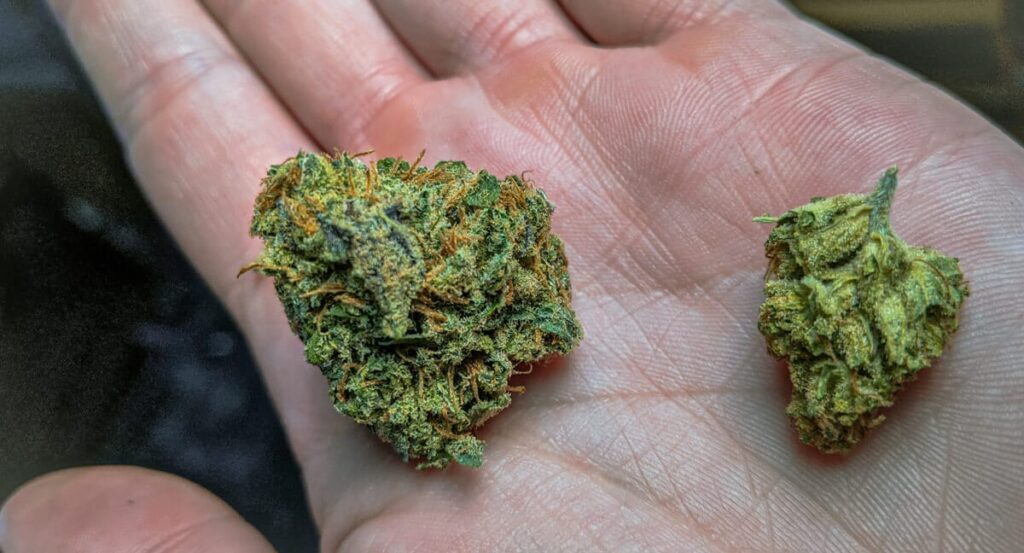
You really should take the time to better understand the difference between Delta 8 and Delta 9 THC. Doing so empowers you to make an informed decision when it comes to your personal preferences, needs, and wants. Whether you are a seasoned cannabis enthusiast or new to the world of THC, grasping the key differences between these two compounds is essential.
The Future of Delta Compounds
As research continues and the legal landscape evolves, we can expect to see more refined products and regulations surrounding Delta compounds. This will likely lead to a better understanding of their effects and how they can be used safely and effectively for therapeutic purposes.
The dialogue surrounding Delta 8 and Delta 9 is not just about individual effects but also about accessibility and user experience. Delta 8 has been lauded for its lower psychotropic potency, which can be a deciding factor for those who want therapeutic benefits with less cognitive impact. This makes it a compelling choice for patients and recreational users who are sensitive to the more intense effects of Delta 9 THC.
Moreover, the burgeoning interest in Delta 8 reflects a growing demand for personalized cannabis experiences. Users are seeking out specific cannabinoids that align with their desired outcomes, whether that’s for relaxation, medicinal purposes, or a gentle introduction to THC products. As the market responds with a wider variety of Delta 8 and Delta 9 products, consumers are empowered to tailor their use to their preferences and needs.
Ultimately, the conversation about these cannabinoids is an evolving one, shaped by ongoing research, user testimonials, and changing regulations. As we learn more about the nuances of each compound, the potential for targeted, effective, and enjoyable cannabis experiences becomes increasingly promising. Whether you lean towards the milder Delta 8 or the traditional Delta 9, the key is to stay informed and choose wisely to ensure a safe and satisfying experience.
Conclusion: Embracing the World of Cannabinoids
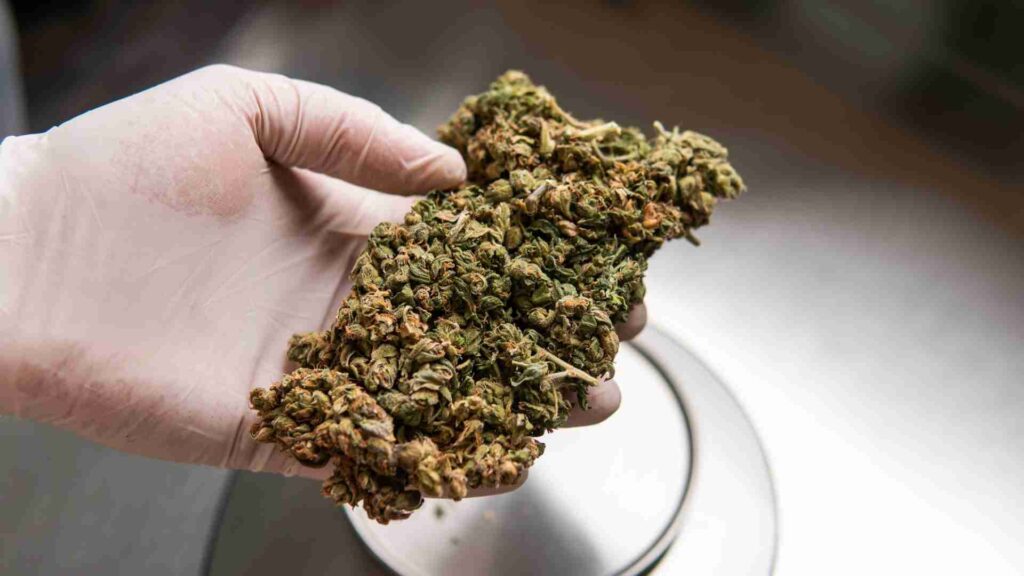
Delta 8 and Delta 9 THC are two fascinating compounds with unique effects, benefits, and legal statuses. Whether you’re a cannabis connoisseur or new to the world of THC, understanding the key differences between these two cannabinoids can help you navigate your options and find the product that’s right for you.
Remember to prioritize safety and regulation in your cannabis journey, and don’t be afraid to experiment (responsibly) to find what works best for you. Welcome to the ever-evolving world of cannabinoids, where there’s always something new to learn and experience!
The choice between Delta 8 and Delta 9 THC is a personal one, influenced by legal considerations, desired effects, and individual responses to these compounds. As the cannabis industry grows and matures, consumers will benefit from increased knowledge, better regulation, and a wider array of product options. Whether you’re seeking relief, recreation, or a bit of both, there’s a Delta 9 gummy that’s right for you.
